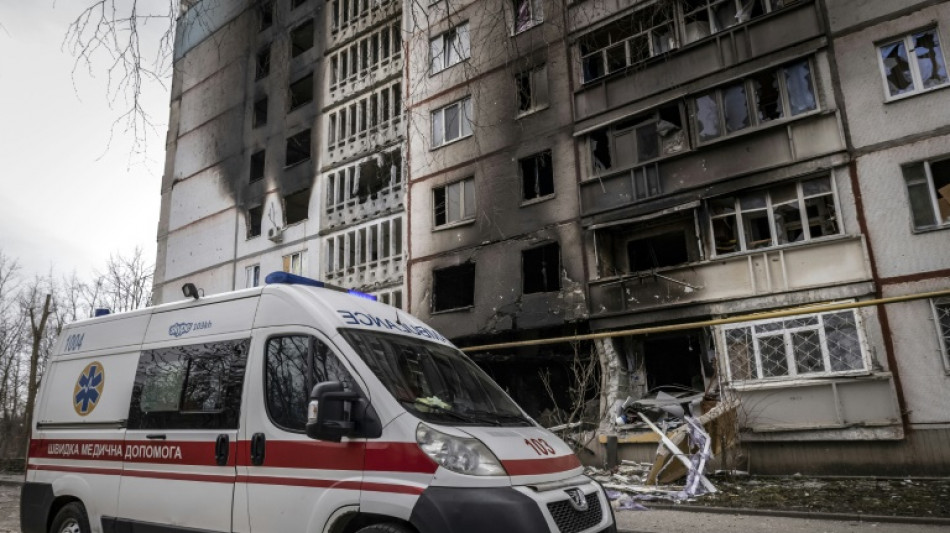
-
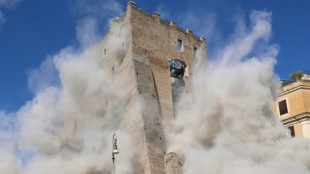 Worker dies after medieval tower partly collapses in Rome
Worker dies after medieval tower partly collapses in Rome
-
Run-machine Labuschagne in form of his life ahead of Ashes
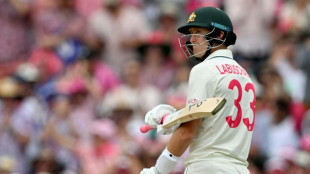
-
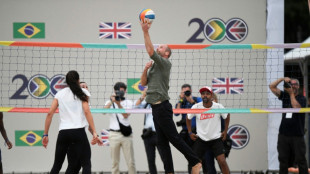 Prince William plays football, volleyball in Rio on climate trip
Prince William plays football, volleyball in Rio on climate trip
-
Jamaicans mobilize aid in aftermath of Melissa's wreckage
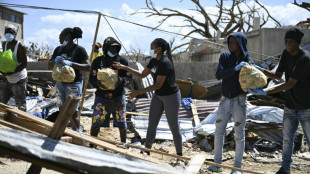
-
 Starbucks cedes China control to Boyu Capital
Starbucks cedes China control to Boyu Capital
-
'Wild at Heart' actress Diane Ladd dies at 89
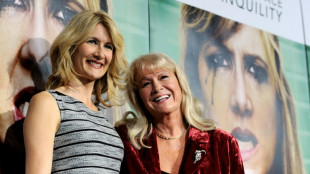
-
 Xhaka lifts Sunderland into fourth after Everton draw
Xhaka lifts Sunderland into fourth after Everton draw
-
Brazil records biggest annual fall in emissions in 15 years: report
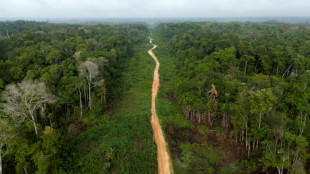
-
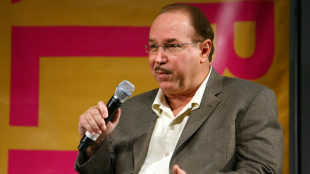 Victor Conte, mastermind of BALCO doping scandal, dead at 75: company
Victor Conte, mastermind of BALCO doping scandal, dead at 75: company
-
Trial opens in 1st US civil case on 2019 Boeing MAX crash
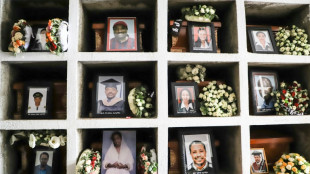
-
 Barrett brothers out of All Blacks' clash with Scotland
Barrett brothers out of All Blacks' clash with Scotland
-
Medieval tower partially collapses in Rome, trapping worker
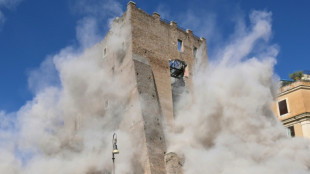
-
 Arsenal's Arteta says injured Gyokeres out of Slavia Prague tie
Arsenal's Arteta says injured Gyokeres out of Slavia Prague tie
-
Alonso says 'quality' Wirtz helped get him Real Madrid job
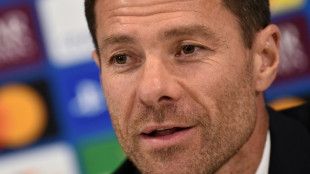
-
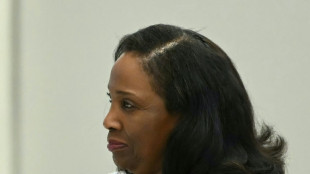 US Fed's Cook warns inflation to stay 'elevated' next year
US Fed's Cook warns inflation to stay 'elevated' next year
-
Blue heaven: huge crowds salute Los Angeles Dodgers in victory parade

-
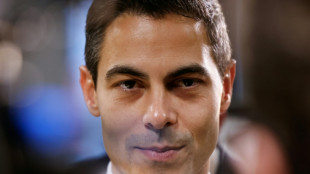 Dutch centrist Jetten clinches election win: final tally
Dutch centrist Jetten clinches election win: final tally
-
Mamdani extends olive branch to anxious NY business community
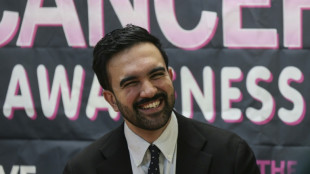
-
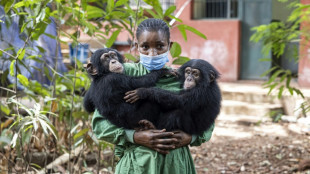 Sierra Leone chimpanzee sanctuary reopens after deforestation protest
Sierra Leone chimpanzee sanctuary reopens after deforestation protest
-
Shein bans sex dolls after France outrage over 'childlike' ones

-
 England full-back Steward doubtful for Autumn rugby clash with Fiji
England full-back Steward doubtful for Autumn rugby clash with Fiji
-
Bayern know how to 'hurt' PSG, says Neuer
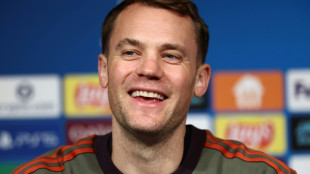
-
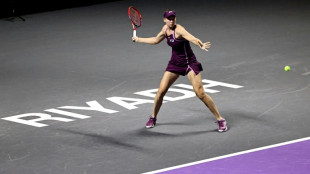 Rybakina downs Swiatek to reach WTA Finals last four
Rybakina downs Swiatek to reach WTA Finals last four
-
Ex-France international Ben Yedder to stand trial on rape charges
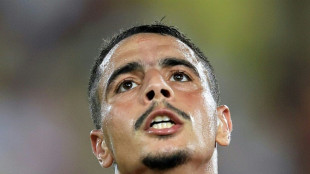
-
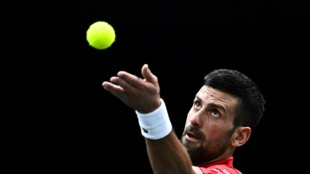 Djokovic confirmed for ATP Finals, says Italian federation boss
Djokovic confirmed for ATP Finals, says Italian federation boss
-
Trent should be remembered for 'great' Liverpool moments, says Slot

-
 Stock markets diverge despite boost from AI deals
Stock markets diverge despite boost from AI deals
-
Prince William awed by Rio on climate-focused trip to Brazil
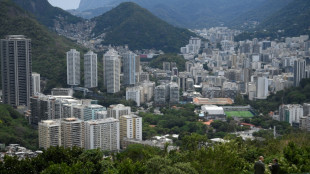
-
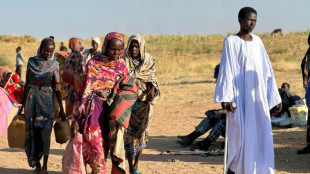 Violence in Sudan's El-Fasher could be war crimes, says top court
Violence in Sudan's El-Fasher could be war crimes, says top court
-
Rybakina downs Swiatek in WTA Finals
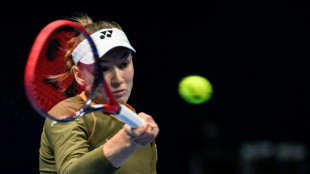
-
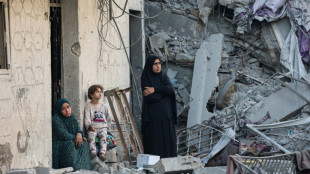 Turkey, Muslim allies say Palestinian self-rule key to Gaza future
Turkey, Muslim allies say Palestinian self-rule key to Gaza future
-
Tens of thousands shelter as typhoon slams into Philippines

-
 Stock markets rise as tech sector buoyed by fresh AI deal
Stock markets rise as tech sector buoyed by fresh AI deal
-
Vitinha says PSG-Bayern Champions League clash will show who's 'best'
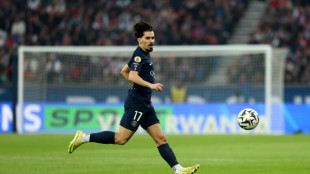
-
 Arsenal: The unstoppable Premier League force?
Arsenal: The unstoppable Premier League force?
-
Denmark inaugurates rare low-carbon hydrogen plant

-
 Springboks back Ntlabakanye call-up despite doping probe
Springboks back Ntlabakanye call-up despite doping probe
-
German plans to lower industrial power costs from January

-
 Christian, Muslim Nigerians push back on threatened US strikes
Christian, Muslim Nigerians push back on threatened US strikes
-
Nigeria's Rivers United paired with African champions Pyramids
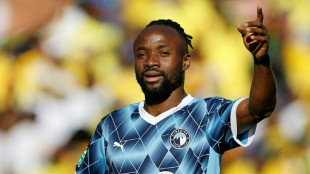
-
 India women cricketers hail new era but challenges remain
India women cricketers hail new era but challenges remain
-
'Heroic' worker praised as man charged over UK train stabbings

-
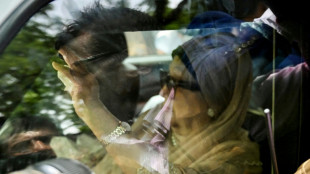 Bangladesh ex-PM Zia to contest elections: party
Bangladesh ex-PM Zia to contest elections: party
-
Tanzania president sworn in as opposition says hundreds killed in protests
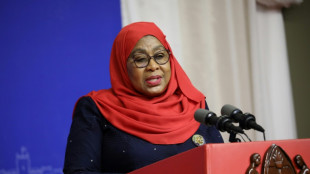
-
 India announces $5.75 million reward for women cricket World Cup winners
India announces $5.75 million reward for women cricket World Cup winners
-
Spain regional leader resigns, a year after deadly floods
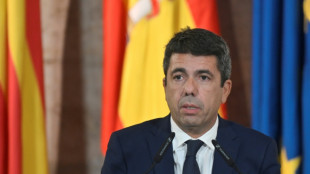
-
 Video game creators fear AI could grab the controller
Video game creators fear AI could grab the controller
-
France threatens Shein ban if 'childlike' sex dolls reappear

-
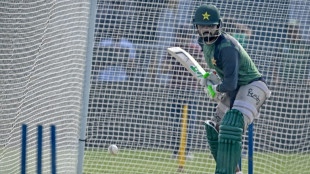 International cricket returns to Faisalabad with Pakistan-South Africa ODIs
International cricket returns to Faisalabad with Pakistan-South Africa ODIs
-
Afghan govt says quake kills 20, injures over 500
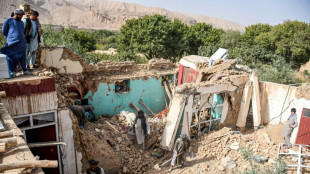
| RBGPF | -3.95% | 76 | $ | |
| BCC | -3.15% | 68.34 | $ | |
| SCS | -0.76% | 15.84 | $ | |
| RYCEF | 1.37% | 15.36 | $ | |
| RELX | -0.16% | 44.17 | $ | |
| NGG | -0.68% | 74.74 | $ | |
| CMSC | -0.34% | 23.67 | $ | |
| AZN | -0.83% | 81.72 | $ | |
| GSK | -1.1% | 46.35 | $ | |
| RIO | -1.95% | 70.37 | $ | |
| BCE | -0.84% | 22.67 | $ | |
| JRI | -0.14% | 13.88 | $ | |
| CMSD | -0.38% | 23.9 | $ | |
| VOD | -5.89% | 11.38 | $ | |
| BTI | 2.38% | 52.44 | $ | |
| BP | -0.75% | 34.87 | $ |

Ukraine war, pandemic push colour WHO international meet
The "devastating" Ukraine war loomed large Sunday as the World Health Organization opened its main annual assembly, threatening to overshadow efforts on other health crises and a reform push aimed at preventing future pandemics.
"The consequences of this war are devastating, to health, to populations, to health facilities and to health personnel," French President Emmanuel Macron told the UN health agency's 75th World Health Assembly.
In a video address, he called on all member states to support a resolution to be presented by Ukraine and discussed by the assembly Tuesday, which harshly condemns Russia's invasion, especially its more than 200 attacks on healthcare, including hospitals and ambulances, in Ukraine.
"Health must never be a target," Swiss Health Minister Alain Berset told the assembly at an opening ceremony featuring interventions from five presidents and a number of government ministers.
The resolution will also voice alarm at the "health emergency in Ukraine", and highlight the dire impacts beyond its borders, including how disrupted grain exports are deepening a global food security crisis.
But while Russia has been shunned and pushed out of other international bodies over its invasion, no such sanctions are foreseen at the World Health Assembly.
"There's not a call to kick them out," a Western diplomat told AFP, acknowledging the sanctions permitted under WHO rules are "very weak".
The assembly, due to run through Saturday, marks the first time the WHO is convening its 194 member states for their first largely in-person gathering since Covid-19 surfaced in late 2019.
- Second term for Tedros -
The Ukraine conflict is far from the only health emergency up for discussion this week, with decisions expected on a range of important issues, including on reforms towards strengthening pandemic preparedness.
"This meeting is a historic opportunity to strengthen universal architecture for security and health," Dominican Republic President Luis Abinader Corona told the assembly.
Among the decisions expected at the assembly is the reappointment of WHO chief Tedros Adhanom Ghebreyesus to a second five-year term.
His first term was turbulent, as he helped steer the global response to the pandemic and grappled with other crises, including a sexual abuse scandal involving WHO staff in the Democratic Republic of Congo.
But while the former Ethiopian health minister has faced his share of criticism, he has received broad backing and is running unopposed, guaranteeing him a second term.
Several leaders speaking Sunday hailed Tedros, with Kenyan President Uhuru Kenyatta saying he showed "exemplary leadership and commitment during one of the most challenging periods" the organisation has gone through.
There will be no shortage of challenges going forward, with the Covid-19 pandemic still raging and demands for dramatic reforms of the entire global health system to help avert similar threats going forward.
And new health menaces already loom, including hepatitis of mysterious origin that has made children in many countries ill, and swelling numbers of monkeypox cases far from Central and West Africa where the disease is normally concentrated.
- Money makeover -
One of the major reforms up for discussion involves the WHO budget, with countries expected to greenlight a plan to boost secure and flexible funding to ensure the organisation can respond quickly to global health threats.
"WHO needs global support and investment," UN Secretary General Antonio Guterres told the assembly in a video address.
The WHO's two-year budget for 2020-21 ticked in at $5.8 billion, but only 16 percent of that came from regular membership fees.
The idea is to gradually raise the membership fee portion to 50 percent over nearly a decade, while WHO will be expected to implement reforms, including towards more transparency on its financing and hiring.
The remainder came from voluntary contributions that are heavily earmarked by countries for particular projects.
"It will be important for WHO to implement reforms quickly," US Ambassador to the United Nations in Geneva Sheba Crocker said.
- Too slow -
The Covid pandemic laid bare major deficiencies in the global health system, and countries last year agreed numerous changes were needed to better prepare the world to face future pandemic threats.
Amendments are being considered to the International Health Regulations -- a set of legally binding international laws governing how countries respond to acute public health risks.
And negotiations are underway towards a new "legal instrument" -- possibly a treaty -- aimed at streamlining the global approach to pandemic preparedness and response.
But leaders and experts warn the reform process is moving too slowly.
"We know that time is running out," Berset said.
Former New Zealand prime minister Helen Clark, who co-chaired an expert panel on pandemic preparedness, warned reporters last week little had yet changed.
"At its current pace, an effective system is still years away, when a pandemic threat could occur at any time."
E.Schubert--BTB




